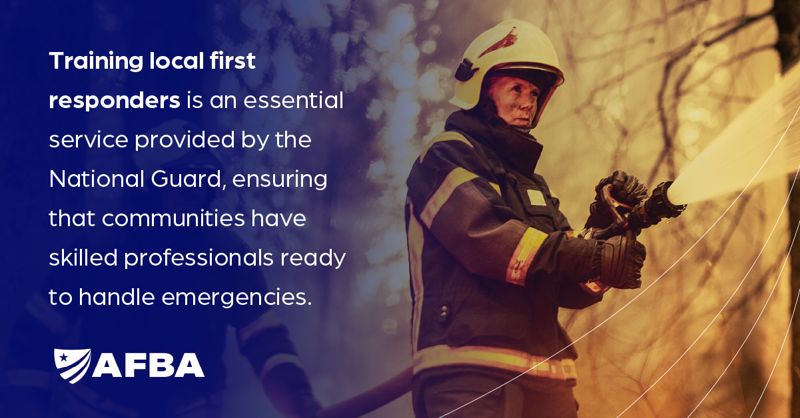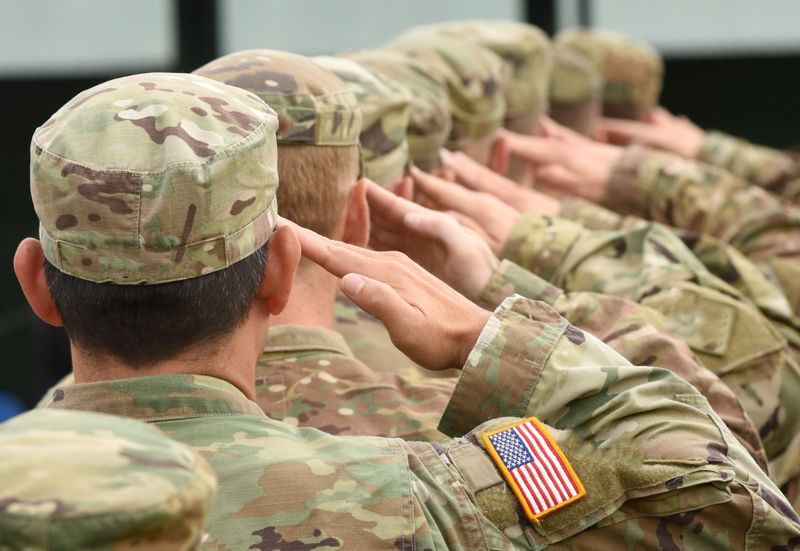Tracing its roots to the early colonial militias of the 1600s, the National Guard has evolved significantly over the centuries. It has played a pivotal role in every major American conflict, from the Revolutionary War to the recent operations in Iraq and Afghanistan. However, its core capacity to serve local communities has never changed.
In this article, we'll take a closer look at three crucial roles the National Guard plays in our communities.

1. Disaster Response and Relief
When natural disasters strike, the National Guard is often among the first to respond, saving countless civilian lives. Their rapid mobilization capabilities allow them to provide immediate assistance to communities facing crises such as hurricanes, floods, wildfires, and earthquakes.
The Guard's presence brings not only manpower and equipment but also a sense of security and hope to affected areas. Their ability to quickly deploy and operate under challenging conditions makes them an indispensable asset during these critical times, helping to stabilize situations that could otherwise spiral out of control.
The National Guard's search and rescue operations are a testament to their bravery and skill. Whether it's navigating floodwaters to rescue stranded families, digging through the rubble of a collapsed building, or airlifting individuals from remote locations, the Guard's personnel are trained to handle a variety of rescue scenarios.
But the job doesn't stop there. After a disaster, their role shifts from immediate response to long-term reconstruction and rehabilitation. Members work tirelessly alongside local authorities and organizations to rebuild infrastructure, restore essential services, and help communities recover from the devastation.
2. Health and Medical Support
In times of crisis, such as the pandemic, the National Guard's emergency medical services are a lifeline for communities facing dire situations. Guard units are equipped with medical personnel and resources that can be deployed to supplement overwhelmed local healthcare systems. Their swift action in setting up field hospitals, providing triage, and delivering medical care is crucial in preserving the health and well-being of affected populations, ensuring that no one is left without access to essential medical services.
Beyond emergency response, the National Guard also engages in ongoing healthcare programs and assistance. These programs aim to improve the overall health landscape of local communities, particularly in underserved areas. Initiatives may include health screenings, vaccination drives, and public health education campaigns, all of which contribute to a healthier populace. The Guard's involvement in these programs demonstrates their role not just as responders, but as proactive agents of health and wellness within the community.
3. Training and Expertise Sharing
Training local first responders is an essential service provided by the National Guard, ensuring that communities have skilled professionals ready to handle emergencies. The Guard offers specialized training programs that cover a range of skills, from emergency medical techniques to disaster response strategies. By sharing their knowledge and experience, the Guard enhances the capabilities of local emergency services, which is vital for the safety and security of the community.
The National Guard's role in sharing military expertise with community agencies extends beyond traditional emergency response. Their personnel often provide insights into logistics, communications, and coordination, which are critical in managing complex situations. This transfer of knowledge helps community agencies to operate more effectively, whether they're planning large public events or improving their readiness for potential crises.
The National Guard's presence is a cornerstone of strength for countless communities. Their unique ability to operate both as a military force and a community service provider allows them to address a wide range of needs, from disaster response to youth development and public health. As challenges evolve and new threats emerge, the Guard will no doubt continue to adapt and expand its capabilities to meet the needs of the nation.

